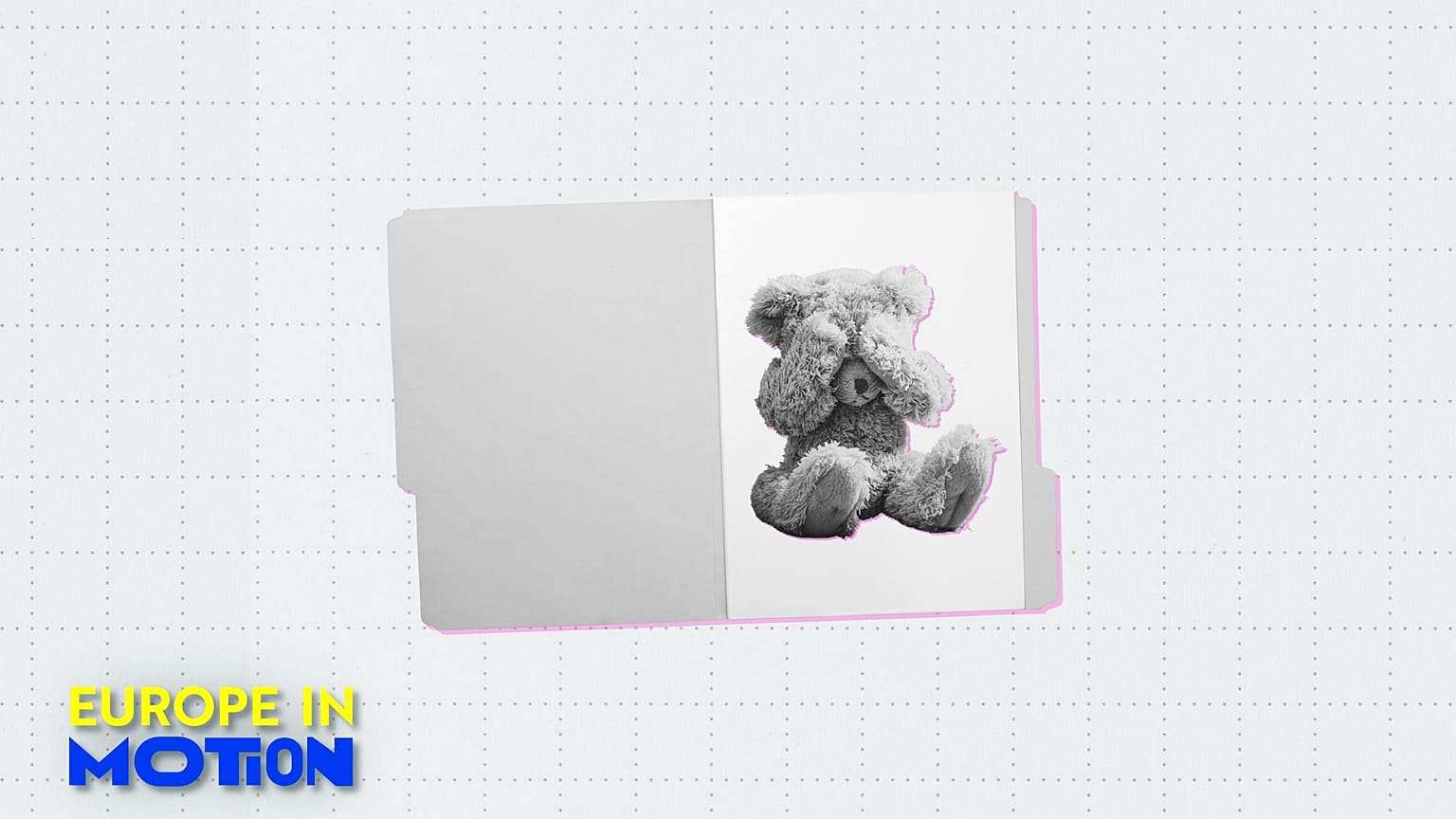While EU lawmakers squabble over the 'chat control bill', child associations decry the five million children in Europe facing online and offline sexual abuse.
One in 15 children in Europe has been a victim of rape or sexual assault, according to a Childlight study on 33 European countries.
 ADVERTISEMENT
ADVERTISEMENT
 ADVERTISEMENT
ADVERTISEMENT
Some 4.7% report experiencing rape before the age of 18, and 7.4% being sexually assaulted.
The incidence seems to be significantly higher among girls (9.7%) than among boys (3.9%).
Violence often occurs within the family: 7.6% experienced sexual assault by a family member during their lifetime before turning 18.
In 2023, child helpines reported over 33,000 (33,261) calls related to child sexual exploitation and abuse.
The report refers to child helpline tags, which describe how child helpline staff document and categorise any contact (such as calls, texts or other forms of communication) in their data systems.
The Netherlands has the highest number of sexual violence tags among the surveyed countries, with 5,819 tags, while the United Kingdom ranked as the primary location for "technology-facilitated child sexual exploitation and abuse".
Ireland emerged as the country with the highest number of offline commercial sexual exploitation (offline) tags: 227.
However, the phenomenon is also becoming increasingly significant online
Amid an astonishing global rise in AI-generated abuse, rising by 1,325% between 2023 and 2024, around one in five European children was exposed to unwanted sexual content in the past year.
Also, one in seven children reported unwanted or pressured online sexual interactions over the same period.
In Europe, Netherlands-hosted web platforms accounted for a staggering 60% of reports against child-sexual-abuse material.
The country also has the highest rate of reports per 10,000 people (880.9 reports/notices per 10,000 people), followed by Slovakia (193.7) and Lithuania (190.0).
"We ask that countries uphold the best interests of the child and establish legislation that gives power to a governing body to set child-centric, gender-sensitive and inclusive standards for the safety of children in online spaces, as well as consequences if these standards are not met," the report says.
Why is the Netherlands a major online child pornography host?
The figures for the Netherlands are so damning due to several factors, Childlight says, namely "the country’s role as a global hub for data centres and internet exchange points, the scale and openness of its hosting market, and potential differences in hosting business models or takedown procedures".
In 2024, the country's senate approved a new law requiring hosting companies to remove online child sexual abuse material from servers, the Eradication of Online Child Pornographic Material Act.
Failing to remove such content may lead to a fine amounting to up to "10% of the company's turnover in the event of repeated violations".
The new legislative efforts will be bolstered by the recent Dutch entry into the Global Online Safety Regulatory Network, a group of countries including, among others, the UK, France, South Korea and Australia, to increase collaboration between online safety regulators.
Furthermore, in 2025, Dutch police took part in two massive operations against online child sexual abuse. The first one was against AI-generated sexual content, while the following took down Kidflix, a paedophile platform with almost two million users.
The operation, which led to 79 arrests and the identification of almost 1,400 suspects, was defined by Europol as its largest operation ever against child sexual exploitation.
Will the EU increase scrutiny on private chats to tackle abuse?
EU legislators have been trying since 2022 to tighten the screws on child sexual abuse with proposals to increase online surveillance.
In particular, one of the points of the so-called Chat Control bill would be to compel instant messaging apps, such as WhatsApp, Telegram and Signal, to scan encrypted conversations in search of images, videos and URLs that might contain child abuse content.
However, in one of the latest rounds of negotiations, last month, member states failed to reach an agreement, citing privacy and "mass surveillance" concerns.
Germany's "no" was decisive, with the country's justice minister Stefanie Hubig saying that chat control "must be a taboo in a state governed by the rule of law".
The Netherlands opposed the bill, too, while Bulgaria, Denmark, France, Hungary and Ireland back the current plans.
How does Europe compare to south Asia?
The Childlight report also looks at south Asia, where an estimated 12.5% of children reported experiencing rape or sexual assault.
Like in Europe, the proportion is higher among girls — 14.5% — compared to boys (11.5%).
Within the region, India, Bangladesh and Pakistan account for 4.5 million reports of child sexual abuse content.
The largest rate per 10,000 people, however, was found in the Maldives (94), followed by Bangladesh with 64 and Bhutan with 41.














